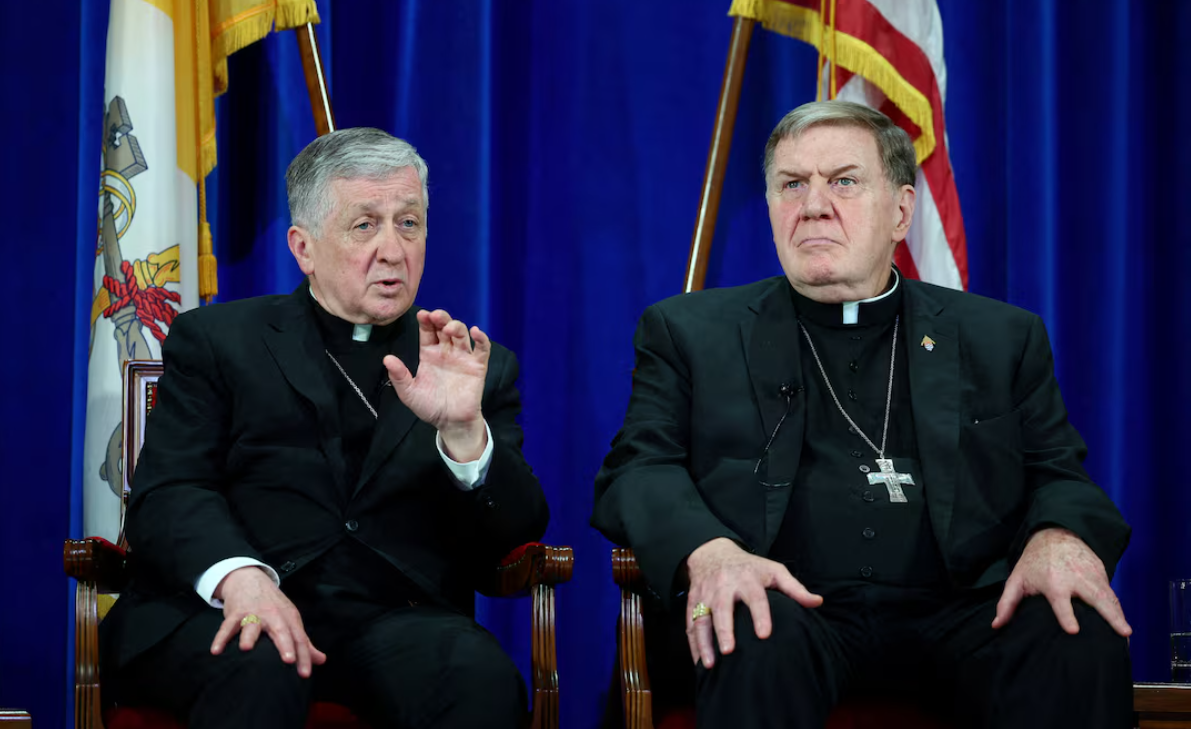For decades, Republicans had a unified message on abortion: The party was “pro-life,” and they leaned into the issue of abortion to turn out their base, who largely agreed. In 2016, Donald Trump campaigned on the message that he would overturn Roe v. Wade. Sure enough, Trump’s conservative appointees to the U.S. Supreme Court helped deliver on that promise in the landmark 2022 decision, Dobbs v. Jackson Women’s Health Organization.
That decision, though, also upended abortion politics in America in a way that turned the tables on Republicans. Since then, expanding and protecting abortion rights has largely been a winning issue for Democrats at the ballot box, while Republicans have struggled to find a cohesive message. This year, the party has been somewhat split as it balances continued calls from conservatives to press for some form of national abortion ban with the reality that abortion restrictions are becoming increasingly unpopular in the post-Dobbs landscape. Despite appointing the justices who overturned Roe and previously saying he’d support a national abortion ban, Trump has waffled on the issue heading into the general election, and the party appears to be following his lead, at least when it comes to its official party line: For the first time in four decades, the Republican National Committee left language supporting a national ban on abortion out of its platform this cycle.
We saw this split play out in this cycle’s Republican primaries as well. While candidates’ exact stances on abortion are sometimes hard to pinpoint, we read the campaign websites of every candidate who ran in the 2024 Republican primaries for U.S. House, U.S. Senate or governor to see what they said, or didn’t say, about abortion, and whether they won their contests. Out of around 1100 total GOP primary candidates, we found 377 whose home page, biography or issue page(s) used at least one of the following phrases: “pro-life,” “sanctity of life,” “right to life,” “no abortion,” “against abortion” or “unborn,” and did not say abortion is an issue of states’ rights (as of the date of their respective primary contests). Meanwhile, far more Republicans running in these primaries, 501, didn’t mention the issue of abortion at all.
As for which candidates ran on an anti-abortion platform, a closer look at the types of races they ran in and won can tell us more about the party’s evolving stance on the issue:
Overall, nearly three-quarters (152 of 209) of the races we tracked in seats rated solidly Republican by the Cook Political Report included at least one candidate with an explicitly anti-abortion platform, and 134 were won by one of those candidates. That means nearly two-thirds of races in solid red districts will have an anti-abortion Republican nominee on the ballot this November who’s almost certain to win election.
Anti-abortion candidates also ran in, and often won, Republican primaries in the handful of competitive races that are rated as likely or lean Republican, though they were less dominant here. Just over half of these races (11 of 19) had at least one candidate with an anti-abortion platform, while fewer than half (eight of 19) will have an anti-abortion nominee on the general election ballot.
Meanwhile, many Republican candidates in swing states and in House districts ranked as toss-ups chose to downplay abortion as an issue. Our analysis found explicitly anti-abortion candidates in 11 of the 28 districts ranked as toss-ups, but only five anti-abortion primary winners: Bernie Moreno in Ohio’s Senate race, Laurie Buckhout in North Carolina’s 1st District, Ryan Mackenzie in Pennsylvania’s 7th, Don Bacon in Nebraska’s 2nd and Juan Ciscomani in Arizona’s 6th. Most of the winners in these races, 16 of 28, actually avoided mentioning abortion on their campaign websites completely. Some of these candidates, however, like Alaska U.S. House candidate Nick Begich, have made support for policies like a national abortion ban clear in other venues — another strategy for trying to de-emphasize the issue in their official messaging while still staking out a conservative stance.
And finally, Republicans running in Democratic territory were much less likely to run on anti-abortion platforms: Half of the 36 GOP primaries in races that lean or are likely Democratic featured anti-abortion nominees, but only four of those races (11 percent) will see an anti-abortion Republican nominee on the ballot this fall. The numbers are similar in solidly Democratic races, in which 15 percent will have an anti-abortion Republican nominee. As in toss-up districts, more than half of Republican nominees in these races didn’t mention abortion on their websites during their primary campaigns.
All of this reflects a careful balance that Republican politicians these days have to strike between appealing to their party base in primaries and pressures to moderate when facing competitive general elections.
Public opinion is much closer to the Democratic Party’s stance on the issue, as abortion restrictions remain unpopular even in red states. Polling from the Public Religion Research Institute last year found only five states — Arkansas, Idaho, North Dakota, South Dakota and Utah — where the majority of voters did not support abortion being legal in all or most cases. Nationwide, 64 percent of Americans said abortion should be legal in most cases, while 34 percent said abortion should be illegal in most cases.
But while public opinion has moved left on the issue over time, Republican opinion has remained relatively stagnant, widening the gap between the Republican and general electorate. This is especially true of white evangelical Christians, an important part of the Republican base in the Trump era. Seventy-three percent of this group supports banning abortion in all or most cases, according to a Pew Research Center poll earlier this year — far more than other religious groups (33 percent of other protestants) and Republican or Republican-leaning voters as a whole (57 percent).
Plus, primary contests specifically tend to attract the most committed partisans, giving GOP politicians ample reason to “run to the right” to win their party’s nominations — even if those same candidates may de-emphasize abortion as an issue in their general election bids. “The people who turn out in the primaries are the ones who have the strongest belief, and for Republicans, that often means the people who are the most strongly anti-abortion,” said Anne Whitesell, a political scientist at Miami University in Ohio who studies politics and gender, and has researched anti-abortion activists post-Dobbs.
For example, all three non-incumbent candidates who won GOP nominations in toss-up races and included anti-abortion language on their websites (Moreno, Buckhout and Mackenzie) ran in primaries against at least one other anti-abortion candidate. And two of them, Buckhout and Mackenzie, have since removed anti-abortion language from their campaign websites as they prepare for tight general election contests against Democratic incumbents.
In recent election cycles, Democrats nationwide have relied on abortion to turn out their base while also winning independents, tying Republicans to unpopular abortion stances. Abortion has also become much more salient with voters, especially for those that lean toward Democrats or identify as pro-choice. Thirty-two percent of voters said they would only vote for a candidate who shared their views on the issue in a Gallup poll from May, up from 24 percent in 2020 — a difference that was largely driven by pro-choice voters, 40 percent of whom said that was true. Plus, an Alabama Supreme Court ruling connected to its anti-abortion law that threatened access to in vitro fertilization treatments has further complicated the picture, opening a new line of attack for Democrats when it comes to reproductive rights.
But Republicans, especially Trump, have also tried to flip the script on abortion and paint Democrats as extremists by making false claims about late-term abortions and claiming that Democratic policies would allow for killing babies after birth. Others, like Trump’s presidential primary opponent Nikki Haley, have urged a less combative approach and acknowledged “diverse opinions” within the party. It makes sense, given that many Republican women in particular support protecting access to abortion in some circumstances, according to polling from KFF. Still, the anti-abortion forces within the party aren’t going anywhere soon, and more moderate Republicans aren’t necessarily going to ditch their party over the issue. “On the whole, are they going to vote for a Democrat instead of the Republican? Probably not,” Whitesell said.
Still, voters trust Democrats and Harris more on abortion by a wide margin, and women voters continue to say it’s an important issue for them. Abortion could help tip the balance in some of November’s key races, and we’ll be watching to see how anti-abortion Republicans pivot from their primary messages, or whether an updated message could help the party make gains on what seems to be a losing issue for them.




